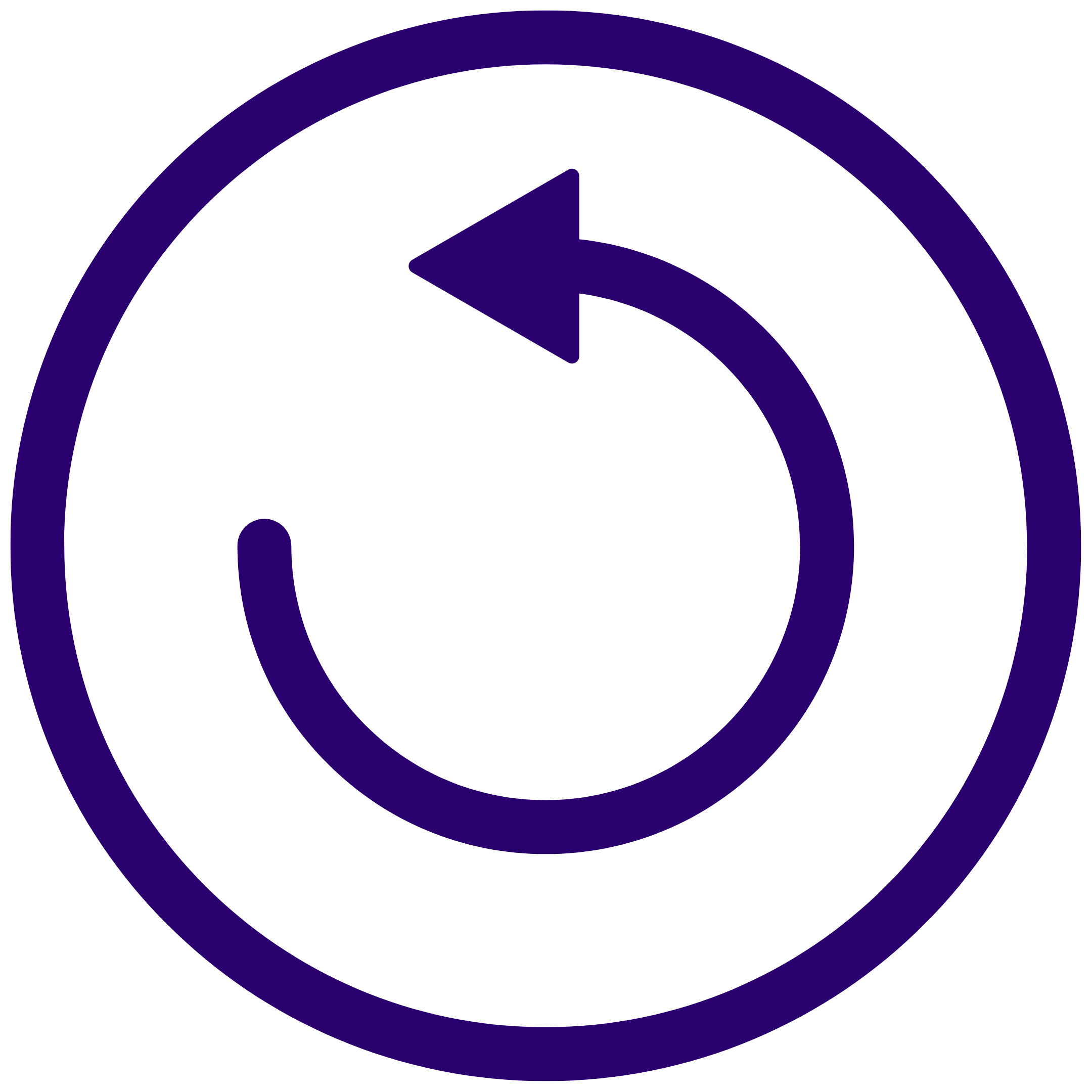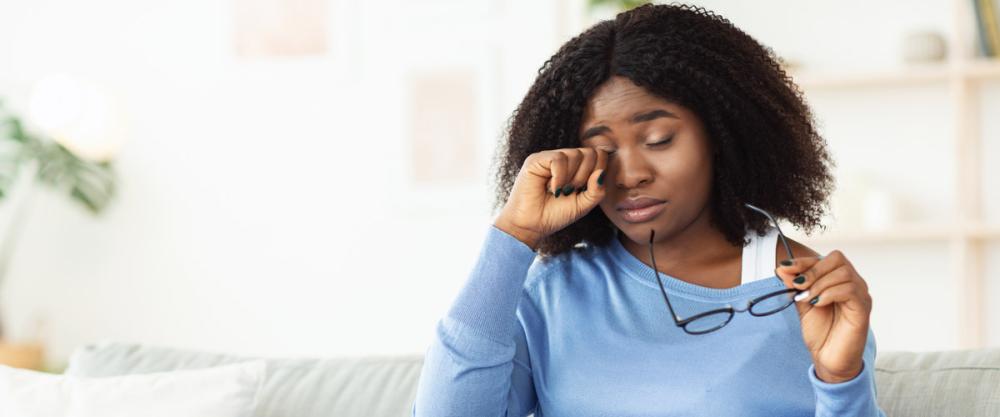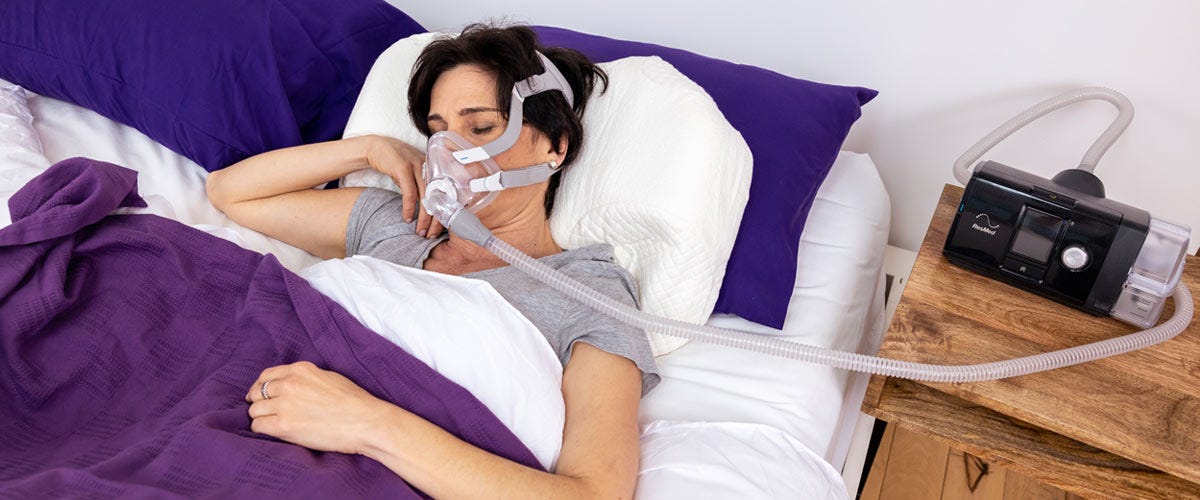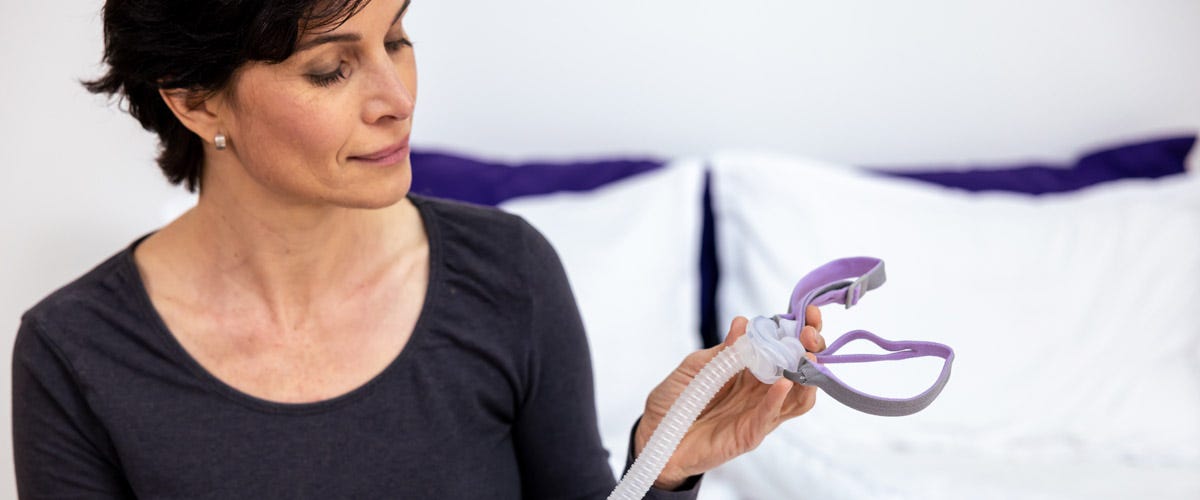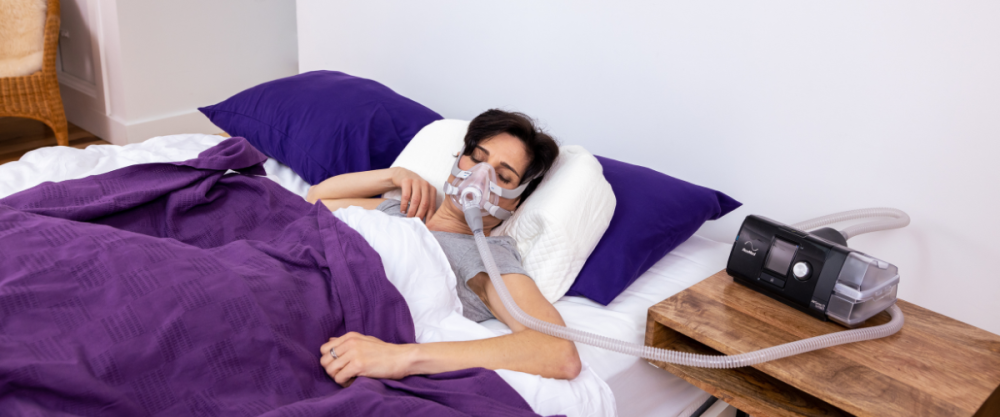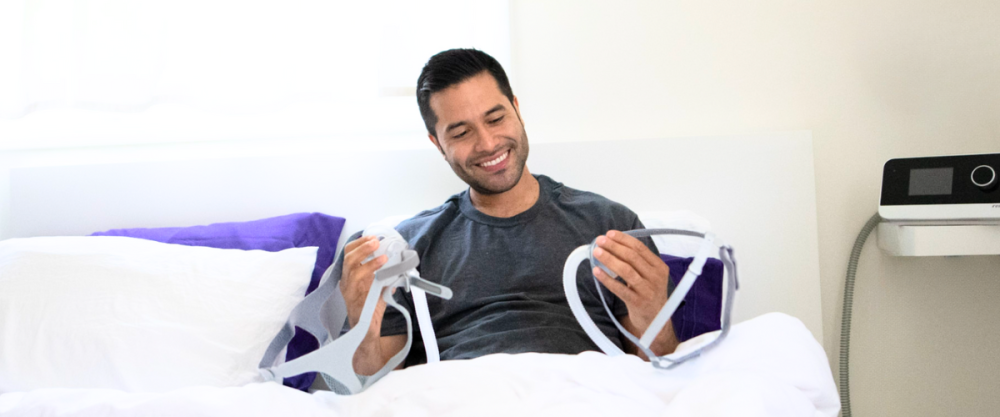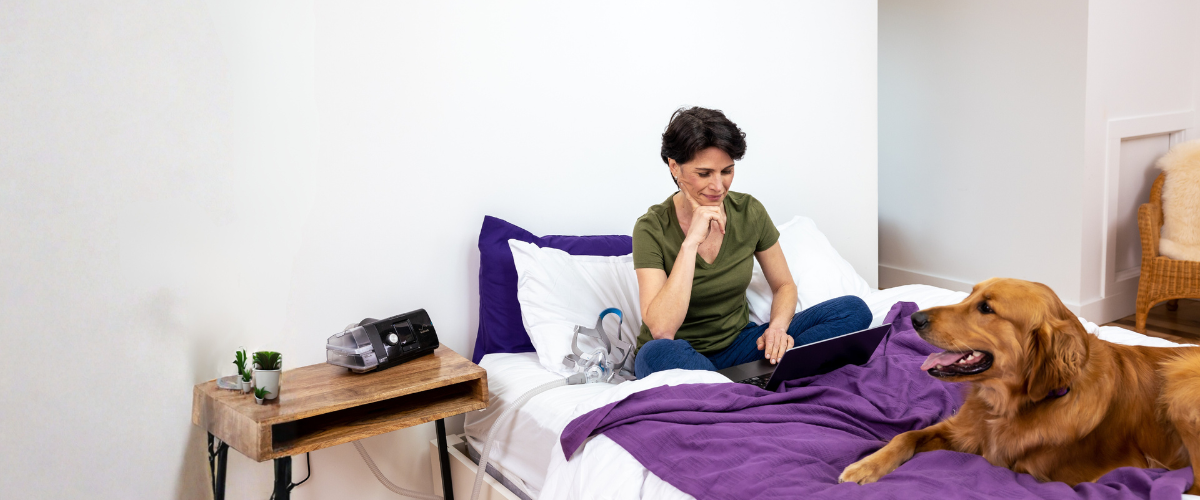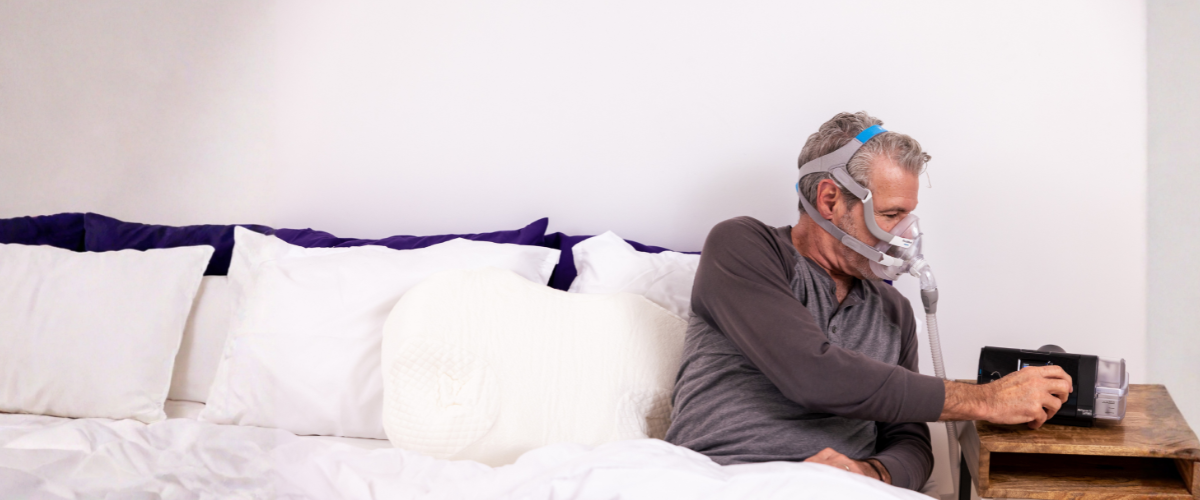One of the most common CPAP machine side effects is dry, itchy eyes. However, if you find yourself unable to fall asleep or waking up with irritated eyes, don’t worry. We’ve discovered the causes and solutions for CPAP dry eyes to provide relief faster than you can blink.
Avoiding Itchy, Dry Eyes With CPAP
First of all, it’s important to note that if you’re treating sleep apnea, you’re already on the right track to better eye health. Research shows that the decrease in oxygen caused by sleep apnea negatively impacts the eyes.
Oxygen desaturation causes the release of catecholamines and inflammatory cytokines. This impacts the body’s ability to repair blood vessels in the eyes and may exacerbate underlying retina issues. Plus, sleep apnea is linked to a variety of conditions that impact eye health such as diabetes, hypertension, glaucoma, and more.
After beginning sleep apnea treatment, you may experience CPAP dry eyes if you develop the following symptoms:
- Redness of the eyes
- A stinging, burning, or scratchy sensation of the eyes
- Stringy mucus or discharge around the eyes
- The sensation of having something in your eyes
- Difficulty wearing contact lenses
- Difficulty driving at night
- Watery eyes
- Eye fatigue
Dry Eyes With CPAP: Causes And Solutions
1. A CPAP Mask Leak
Your dry eye symptoms may be caused by a leak located along with the seal of your CPAP mask. As you sleep, the mask could be leaking air that dries out your eyes. A mask that fits incorrectly could also disperse air around your eyes, leading to the puffy, red, and itchy feeling you’ve gotten used to.
But what if you have the wrong type of CPAP mask? CPAP masks are positioned close to your eyes at the bridge of your nose. Full face masks that take up more space have a higher potential to leak. You may also have the wrong type of mask for high-pressure settings.
Solutions
Check your mask for a leak. Turn your CPAP on and feel around your mask seal for leaking air. Also, listen for the hissing sound of escaping air.
Replace your mask. Over time as your mask comes into contact with oils from your skin, dust, and other debris, the material will break down, leading to cracks in the seal. Maintain a regular CPAP supplies replacement schedule to ensure it remains effective.
Remember to replace your headgear as well. It may get stretched out over time, becoming too loose to hold your mask tightly against your face. On this note, keep in mind that you need the correct fit for your CPAP to work as it should. Your mask should feel snug, but not too tight. It should be firm, but not cause pain.
Try a different type of mask. If you require higher CPAP pressure settings, consider switching to a full face mask instead of a nasal mask. A full face CPAP mask disperses the air pressure over a greater area.
If your full face mask leaks then consider different shape and size options. Some masks have a forehead strap to reduce pressure on the nasal bridge and others have wider frames. The best mask fit depends on your individual facial features.
Bonus tip. Clean your mask! Wash away the oils, dead skin cells, dust particles, and more that could be preventing your mask from creating a secure seal. Plus, cleaning it will help it last longer!
2. Blowing Air From Other Sources
Do you have a ceiling fan, air purifier, space heater, or air vent creating air movement towards your face? If the answer is yes, the blowing air could be irritating your eyes.
Solutions
Investigate your bedroom for sources of blowing air. If they seem to be directing airflow towards your eyes, rearrange as necessary to avoid the irritation. Protect your eyes from drying out and also block out any sources of light that could keep you awake by wearing a sleeping mask to bed.
3. Allergens Are In Your Bedroom
Allergens can cause your eyes to become dry, irritated, and itchy. As your body comes into contact with the particles it’s sensitive to, it releases histamine, causing inflammation in your eyes. Common allergy triggers include dust, pollen, smoke, pet dander, and more.
Solutions
Regularly clean and wash your sheets to remove dust, and keep pets out of your sleeping area. You can also use an air purifier to filter out allergens.
Clean your CPAP supplies on a regular basis to remove allergens. Don’t forget to wash and change the filters inside of your machine.
Keep the windows closed to prevent smoke and pollen from blowing in.
Take a shower at night to wash away any allergens before you get in bed.
See an allergist to discover what you’re allergic to and to develop a treatment plan.
Bonus tip: Apply eye drops to moisturize your eyes and flush out irritants. Artificial tears are a great solution for all causes of dry eyes.
4. Other Health Conditions
You may have and underlying health condition that makes it difficult for your eyelids to fully close or that could cause your eyes to dry out. For example:
Floppy eyelid syndrome (FES): People with this condition develop loose, rubbery eyelids. Their eyelids may not close all the way during sleep, leaving the inner eye exposed to air. It’s most common in middle-aged men with sleep apnea.
Diabetes: Diabetes is also linked to sleep apnea and may reduce tear production due to a high blood sugar level that causes inflammation. As the blood vessels around the eyes swell, they become blocked, restricting blood circulation to the tear glands which reduces tear production.
Sjogren’s syndrome: This is an autoimmune disorder that causes your immune system to attack areas of your own body. These include tear and saliva glands, leading to dry eyes and mouth.
Solutions
Talk to your doctor. Discuss your symptoms with a medical professional to discover treatment options that may include medication, eye drops, surgery, or even dietary modifications. The addition of Omega 3 fatty acids found in fish oils may provide some relief by reducing some of the inflammation associated with dry eye, according to the American Academy of Opthamology.
5. The Air In Your Bedroom Is Dry
In the winter, the air is generally less humid than during other seasons. As the chill hits and you crank up the heat, the air that flows through your home and cycles through your CPAP is extra dry.
The SOLUTIONS
Use a CPAP with a humidifier to add heated moisture to the air cycling through your machine. A heated hose or hose cover may also help warm up the air to provide relief from dryness and cold air.
Use a stand-alone humidifier to add moisture to the air in your bedroom.




